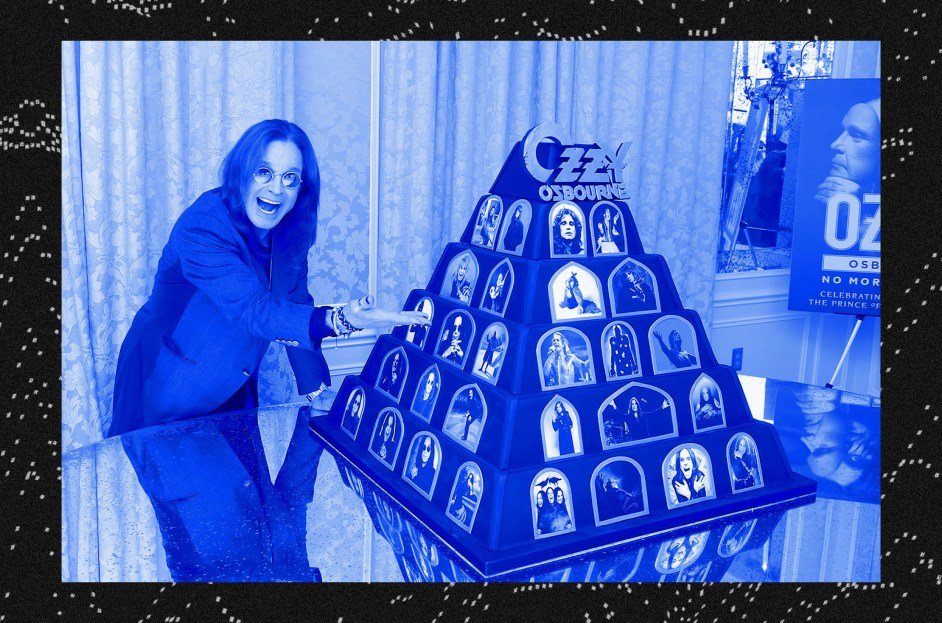The Lessons of Ozzy’s Legacy: How the Prince of Darkness Remained a Beloved Pop-Culture Icon for Decades
The Lessons of Ozzy’s Legacy: How the Prince of Darkness Remained a Beloved Pop-Culture Icon for Decades
Few figures in music history have traversed as many lives, stages, and transformations as Ozzy Osbourne. Dubbed the “Prince of Darkness,” he began as the unpredictable frontman of Black Sabbath and evolved into a reality TV star, cultural ambassador of heavy metal, and enduring symbol of rock rebellion. Ozzy’s legacy is not just about his music—it’s about how he defied expectations, survived personal demons, and redefined what it means to be an icon. His decades-long relevance holds timeless lessons for artists and audiences alike.
### 1. **Authenticity Above All**
From his slurred speech to his off-kilter humor, Ozzy never pretended to be anything he wasn’t. Whether snarling lyrics about war and insanity or bumbling around his home in *The Osbournes*, fans loved him for being raw and real. In an industry obsessed with image, Ozzy’s authenticity—flaws and all—was magnetic. He showed that being unapologetically yourself can resonate louder than perfection.
### 2. **The Power of Reinvention**
Ozzy’s career has had more comebacks than most artists dream of. After his dismissal from Black Sabbath in 1979, many wrote him off. Instead, he launched a wildly successful solo career, with albums like *Blizzard of Ozz* and *Diary of a Madman* becoming metal classics. Later, he introduced himself to a new generation through reality TV and collaborations with artists like Post Malone, proving his ability to adapt without compromising his identity.
### 3. **Turning Controversy into Cultural Capital**
From biting the head off a bat to public meltdowns, Ozzy has seen more than his share of scandal. But he turned controversy into curiosity. He wore his wild stories as badges of survival, not shame. Rather than sinking under public scrutiny, Ozzy leaned into the myth, blurring the line between horror and humor, metal and mainstream.
### 4. **Family First—Even in Chaos**
One of the biggest surprises of Ozzy’s legacy is how central family became to his public persona. *The Osbournes* reality show revealed a different side of the metal god: a confused but loving father, a husband trying to stay sober, and a man clinging to his chaotic yet close-knit family. This dynamic not only humanized him but made him relatable beyond music circles.
### 5. **Mental Health and Resilience**
Ozzy has been open about his struggles with addiction, mental health, and physical ailments. His journey is one of resilience—marked not by denial, but by gritty survival. Instead of hiding his battles, he used them to connect with fans who saw their own pain in his lyrics and recovery in his perseverance.
### 6. **Staying Loyal to the Fans**
Ozzy’s love for his fans is legendary. Even when health issues forced him off the road, he continuously communicated with his audience, vowing to return when he could. He understood the sacred bond between performer and fan—and he honored it. That loyalty kept generations of listeners devoted to him.
—
### A Legacy That Transcends Darkness
Ozzy Osbourne’s story is one of contrast: darkness and light, chaos and clarity, metal and mainstream. He is proof that legacy isn’t just about records sold or awards won—it’s about impact, honesty, and enduring relevance. The Prince of Darkness became a beloved pop-culture icon not by changing who he was, but by embracing every shade of himself—and letting the world come along for the ride.
In the end, Ozzy didn’t just survive the music industry—he transcended it. And in doing so, he taught us that being legendary isn’t about being flawless; it’s about being unforgettable.




